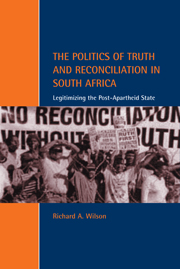Preface and Acknowledgements
Published online by Cambridge University Press: 10 November 2009
Summary
In democratizing countries of Latin America from the mid-1980s and Eastern Europe from 1989, the language of human rights emerged as a universal panacea to authoritarianism. Human rights were demanded by ordinary citizens massed in the squares of Leipzig or on the streets of Bisho, and they became symptomatic of the kind of ‘procedural’ liberalism established in post-authoritarian states. Human rights based legislation became a central component in the transformation of repressive institutions and in the establishing of the rule of law after the distortions of authoritarian legality. Each society had to face the question of how to deal with the gross human rights violations of the past, and new institutions and commissions were set up to reaffirm human dignity and to ensure that violations would not occur again. Increasingly, human rights talk was detached from its strictly legal foundations and became a generalized moral and political discourse to speak about power relations between individuals, social groups and states. This broad extension of human rights talk was exacerbated as democratizing regimes with crumbling economies and fractured social orders grasped for unifying metaphors, and human rights talk seemed to provide an ideological adhesive through terms such as ‘truth’ and ‘reconciliation’.
By the 1990s, it was time to take stock and to evaluate critically the role of human rights ideas and institutions in democratic transitions.
- Type
- Chapter
- Information
- The Politics of Truth and Reconciliation in South AfricaLegitimizing the Post-Apartheid State, pp. xv - xxiiPublisher: Cambridge University PressPrint publication year: 2001

